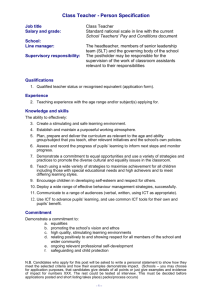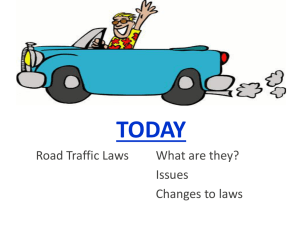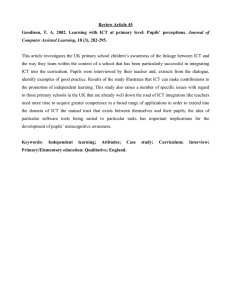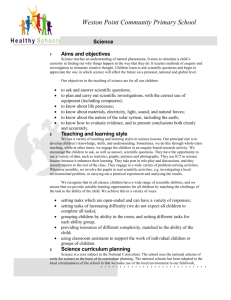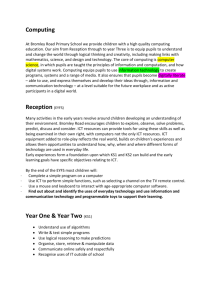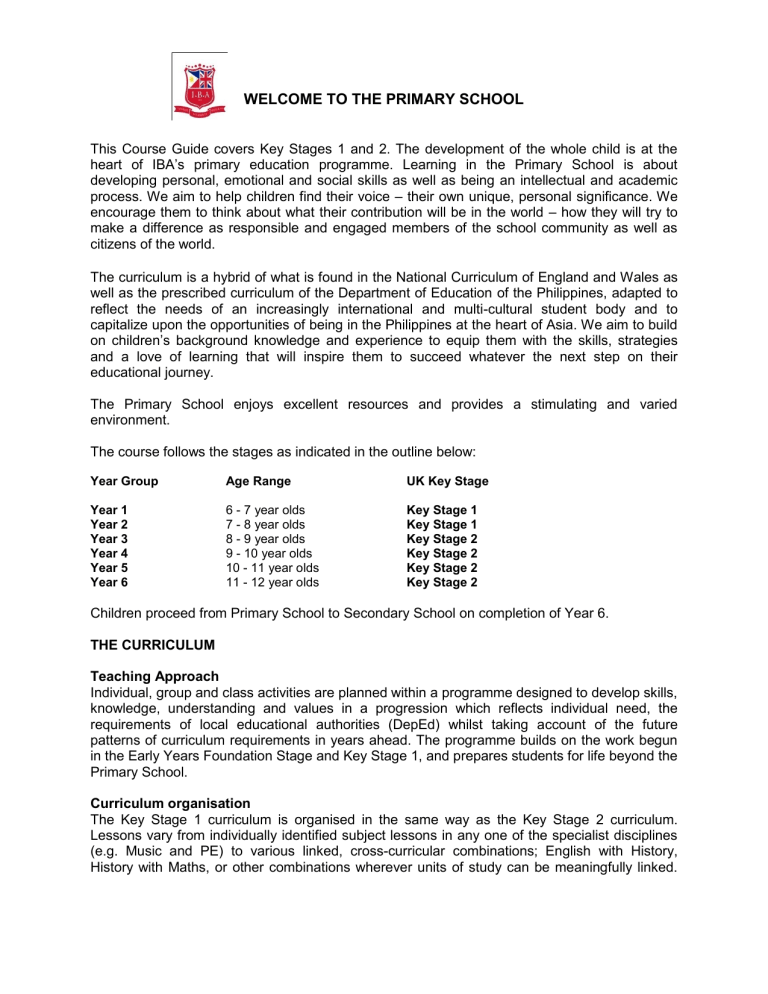
WELCOME TO THE PRIMARY SCHOOL
This Course Guide covers Key Stages 1 and 2. The development of the whole child is at the heart of IBA’s primary education programme. Learning in the Primary School is about developing personal, emotional and social skills as well as being an intellectual and academic process. We aim to help children find their voice – their own unique, personal significance. We encourage them to think about what their contribution will be in the world – how they will try to make a difference as responsible and engaged members of the school community as well as citizens of the world.
The curriculum is a hybrid of what is found in the National Curriculum of England and Wales as well as the prescribed curriculum of the Department of Education of the Philippines, adapted to reflect the needs of an increasingly international and multi-cultural student body and to capitalize upon the opportunities of being in the Philippines at the heart of Asia. We aim to build on children’s background knowledge and experience to equip them with the skills, strategies and a love of learning that will inspire them to succeed whatever the next step on their educational journey.
The Primary School enjoys excellent resources and provides a stimulating and varied environment.
The course follows the stages as indicated in the outline below:
Year Group
Year 1
Year 2
Year 3
Year 4
Year 5
Year 6
Age Range
6 - 7 year olds
7 - 8 year olds
8 - 9 year olds
9 - 10 year olds
10 - 11 year olds
11 - 12 year olds
UK Key Stage
Key Stage 1
Key Stage 1
Key Stage 2
Key Stage 2
Key Stage 2
Key Stage 2
Children proceed from Primary School to Secondary School on completion of Year 6.
THE CURRICULUM
Teaching Approach
Individual, group and class activities are planned within a programme designed to develop skills, knowledge, understanding and values in a progression which reflects individual need, the requirements of local educational authorities (DepEd) whilst taking account of the future patterns of curriculum requirements in years ahead. The programme builds on the work begun in the Early Years Foundation Stage and Key Stage 1, and prepares students for life beyond the
Primary School.
Curriculum organisation
The Key Stage 1 curriculum is organised in the same way as the Key Stage 2 curriculum.
Lessons vary from individually identified subject lessons in any one of the specialist disciplines
(e.g. Music and PE) to various linked, cross-curricular combinations; English with History,
History with Maths, or other combinations wherever units of study can be meaningfully linked.
All subjects have separate programmes of study reflecting the requirements of both the DepEd and the UK National Curriculum.
The curriculum is designed to promote the active involvement of students. Throughout the curriculum, pupils are encouraged to gain experience of, commitment to, and concern for the physical environment and for human communities on a number of scales - school, local,
Philippines, Asian and international. Students develop an appreciation of the past and present and the way environments change as a result of human activity.
ALLOCATION OF TIME
Periods per week KEY STAGE 1 (Y1-Y2)
English 5
Mathematics
Science
I C T
History & Geography
4
4
1
3
Filipino
Mandarin
Religious Education
Music
Physical Education
Art
PSHE
3
N/A
N/A
1
1
1
1
KEY STAGE 2 (Y3-Y6)
6
5
5
2
3
3
2
1
1
2
1
N/A
Total
* The allocation of these subjects and timings is approximate and may change during the year due to trips, visits and/or topic work.
ENGLISH
In Years 3 to 6, all teachers adopt the strategies for language/literacy teaching that have become statutory in England and Wales. The programme is taught 5 to 6 specific language lessons each week. This work is supplemented by cross-curricular activity within other subject areas. For some students, support in literacy skills will be recommended and facilitated through remedial classes after school. Parents will always be consulted if such support is deemed necessary.
MATHEMATICS
The content and teaching approach in KS2 Mathematics follows the Primary Framework for
Mathematics for England and Wales. The topics which are developed throughout the Key
Stages are:
• Counting, partitioning and calculating
• Securing number facts, understanding shape
• Handling data and measures
• Calculating, measuring and understanding shape
• Securing number facts, relationships and calculating
At all levels, investigative work supplements the core, and cross-curricular links are used when appropriate.
Support is provided for children who have difficulties. More able children are offered extension activities.
SCIENCE
Science throughout the primary age range is taught as a separate subject, building on previous experience. There are some elements of integration with other subjects, and science teaching sometimes parallels a History or Geography theme. Learning Science helps children to develop ways of understanding the world around them for which they need to build up concepts that help them link and interpret their experiences.
The Programme of Study states that the learning of science should be "set within the everyday experience of pupils and also in wider contexts".
Children must learn ways of obtaining and organising information and of applying and testing scientific ideas. The Science curriculum contributes not only to children's ability to make better sense of things around them, but prepares them to deal more effectively with wider decision-making and problem-solving activities.
INFORMATION AND COMMUNICATION TECHNOLOGY (ICT)
ICT is an integral part of modern life. Through teaching ICT we equip children to participate in a rapidly-changing world where work and leisure activities are increasingly transformed by technology. We enable them to find, explore, analyse, exchange and present information. We also focus on developing the skills necessary for children to be able to use information in a discriminating and effective way.
ICT skills are a major factor in enabling children to be confident, creative and independent learners.
HISTORY
The past influences the present in that it shapes the customs and beliefs of the communities to which we belong. Learning about the past and the methods used to study it, helps children in making sense of the community and the world in which they live. Children who have a deep knowledge of their past and actively participate in the transformation of their community and nation, develop a sense of identity, which is a basic element for a country’s progress. Topics in the curriculum are mostly centered on the Philippines, but the final term of the year is allotted for study on chosen topics that focus on the UK.
GEOGRAPHY
Geography is concerned with the study of places, the human and physical processes which shape them, and the people who live in them. It develops in children a knowledge and understanding of the place where they live in, of other people and places, and of how people and places inter-relate and inter-connect. It fosters an appreciation of environments and develops an informed concern for the world around us, thereby enhancing a sense of responsibility for the care of the earth.
MUSIC
Music is taught by a music specialist in the Primary School. Throughout both key stages, pupils will have experience in performing, composing and listening to a wide range of musical genre.
PHYSICAL EDUCATION (PE)
All Year Groups benefit from teaching by specialist teachers from the PE Department. Physical
Education, experienced in a safe and supportive environment is a vital and unique contributor to a child’s physical development and well-being. The PE Curriculum aims to increase pupils’ selfconfidence in their ability to manage themselves and their bodies physically. With varied teaching approaches and differentiated and logically developed tasks, all pupils, irrespective of ability, should enjoy success and be motivated to continue to develop their individual potential.
A balance of individual, and group co-operative and competitive activities, caters for the preferences, strengths and needs of each pupil. Students will be encouraged to appreciate the importance of a healthy and fit body and begin to understand those factors which influence health and fitness.
ART
Art is the expression of ideas, thoughts and feeling through sensory experience, in a variety of
2D and 3D media. Art is also concerned with the development of visual perception (the ability to perceive, distinguish and identify visual elements, e.g. colour, line and tone, and to communicate about them effectively), visual literacy (the ability to read a painting visually, i.e. what is going on) and to enable understanding and appreciation of art form in a variety of cultures, styles and periods through time.
PERSONAL, SOCIAL, HEALTH AND CITIZENSHIP EDUCATION (PSHE)
The education of the whole child is at the heart of the IBA Primary curriculum. Staff at IBA recognise that the most effective way of teaching PSHE is through well-structured lessons with clear and realistic learning objectives. We do this through our programme which is timetabled for every class each week that cover a range of topics that includes self-esteem, communication, relationships, spiritual and moral development, and citizenship.
RELIGIOUS EDUCATION (RE)
Religion and beliefs shape our values and are reflected in what we say and how we behave.
The importance of RE is recognized in our curriculum, contributing to the development of a young mind’s knowledge and understanding of the religions and beliefs which form part of contemporary society. Religious education presents challenging questions about the ultimate meaning and purpose of life, beliefs about God, the self and the nature of reality, issues of right and wrong, and what it means to be human.
MODERN FOREIGN LANGUAGE (MFL-Mandarin)
Exposure to and learning a foreign language allows for the enrichment of knowledge, skills and understanding developed in English language learning, especially in the development of speaking and listening skills. The teaching of a foreign language at Key Stage 2 offers opportunities for children to understand and communicate in a language other than English, increase their cultural awareness by learning about another country and their people, and develop positive attitudes towards language learning.
HOME/SCHOOL PARTNERSHIP
We believe that children feel most secure and learn best when all ‘significant adults’ are working together for their benefit. Partnership between school and home is of paramount importance and is a strong feature of our philosophy. This partnership grows if there is regular, two-way communication, contact and discussion between home and school.
Let’s be partners in educating and raising the children of the future the IBA way! IBA KAMI!
